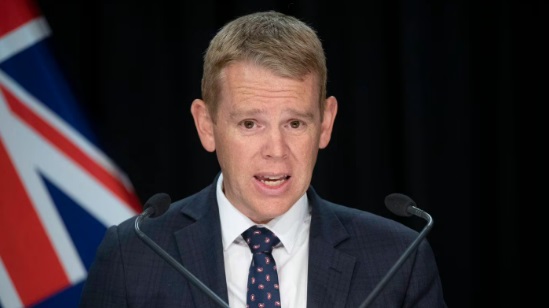
It means eligible parents will see an increase in the parental leave payment from $661.12 per week to $712.17 per week, before tax.
Hipkins made the announcement in his post-Cabinet press conference, and has also indicated the Government has backed down on a condition which would have required early childhood centres to accept children only for 20 hours a week.
The expansion of the 20 hours-free scheme was one of the Budget moves aimed at helping with the rising cost of living and was to kick in from March next year.
There was a backlash from early childhood education groups who said the Government’s Budget ECE policy would be unworkable and the conditions attached to the scheme would make it hard for some to remain viable or offer the scheme.
Hipkins announced the backdown today after early childhood centres said Labour’s $1.2 billion Budget move to expand the 20 hours-free scheme to 2-year-olds risked putting them out of business.
The expansion of the scheme was to have been accompanied by a requirement that centres had to accept children even if they were only enrolling for the 20 hours-free childcare. Most centres said they made money to operate from charging for hours that children attended above the 20 hours-free scheme, as well as charging for items such as nappies.
The scheme operates by Government subsidies based on a ratio of one teacher for every 10 children.
The centres were also concerned the higher needs of 2-year-olds would require a higher staff ratio, which they could not afford under the scheme alone.
In a statement, Associate Education Minister Jo Luxon said she had met with ECE representatives since the Budget, and they had flagged that the proposed condition requiring services to offer enrolments for 20 hours only was an issue.
She said they could not consult with centres prior to the announcement because of the confidentiality of the Budget process.
“This change will still enable parents to access more affordable childcare while allowing services to retain flexibility in their enrolment practices to support their viability.”
Luxon said other funding conditions would remain, including those giving fee transparency to parents and ensuring 20 hours ECE was genuinely free. The move was one of Labour’s attempts to ease the cost of living pressures on families in the Budget and was accompanied by a 4.6 per cent increase in the 20 hours funding rates.
Hipkins said services still had to provide clarity to parents about what they were charging for, and advise the Ministry of Education of their fees schedules.
Asked why they had not consulted with the ECE sector on it, Hipkins said it was because of Budget confidentiality.
“Ultimately this is a process we go through every year where funding is allocated and then we work through the details of implementation,” Hipkins said.
Hipkins said the election year might be the reason there was a lot of noise around the ECE policy, saying there are some in the early childhood sector who are “not particularly supportive of the Government’s direction in early childhood education”.
On teacher’s strikes, Hipkins said he encouraged the teacher unions to enter arbitration, saying it would offer “a fair, objective and impartial view” on the way forward.
Paid parental leave is set to go up on July 1 by $51 a week for new parents - and $1327 for those taking the full 26 weeks of parental leave.
Paid parental leave rates are pegged to the average wage, so would lift by 7.7 per cent, Hipkins said today.
The minimum rate for self-employed parents will increase to $227 per week - equal to 10 hours of the minimum wage for an adult worker.
Minister Priyanca Radhakrishnan said it would help a lot of families as 56,200 people received a payment in 2022.
Eligible parents can receive payments for up to 26 weeks.
The Budget will also mean that from mid-2024, new parents will receive a 3 per cent Government contribution to their KiwiSaver while on paid parental leave, provided they continue their own KiwiSaver contributions.













